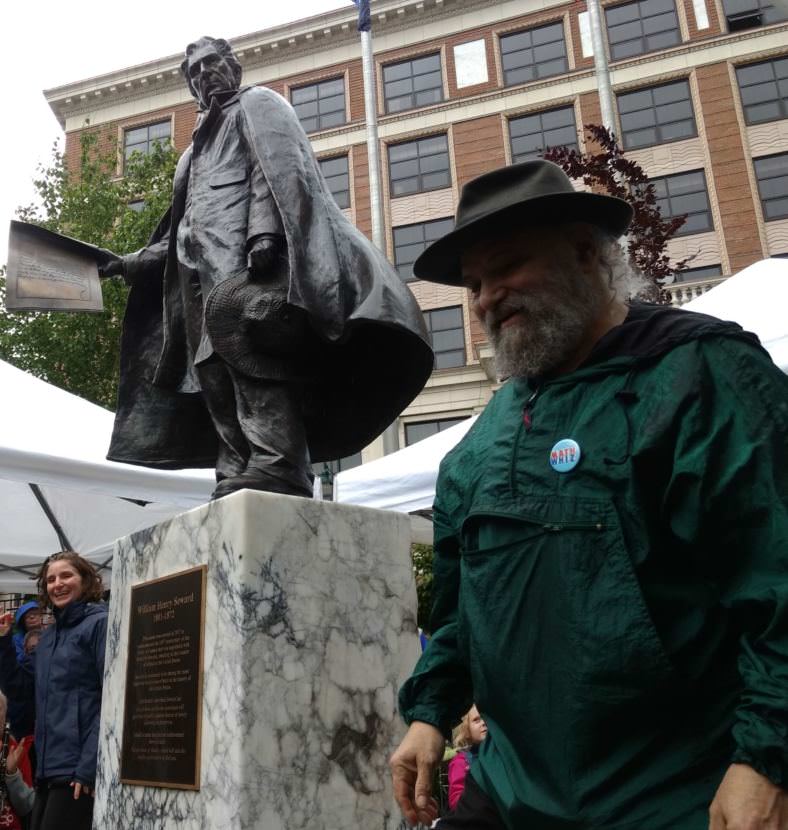
A statue of the U.S. statesman behind Alaska’s 1867 purchase from Russia now stands in front of Alaska’s Capitol building.
The plastic covering was pulled down Monday afternoon to reveal a 6-foot sculpture of Secretary of State William Seward. The work of Ketchikan-based siblings David and Judith Rubin, it was erected to mark the 150th anniversary of the transaction that shifted Alaska from being Russian-America to U.S. territory.
The Juneau Community Marching Band struck up a tune as 21st century politicians honored the 19th century top diplomat who was one of President Lincoln’s closest confidants during the Civil War.
“You know you’ve heard the history of Seward but I’d like to just recite what Seward means to me,” U.S. Rep. Don Young told the 100 people gathered. “First, he made me a congressman and and I want to thank him for that. And secondly, every time I fly into Alaska and I do this twice a month and I’d be flying either to Southeast or up around the Railbelt into Barrow or somewhere and I think, ‘My God, what a place he did for us’ when he bought us for $7 million … $200,000 or $200 million or whatever it was.”
But Steve Haycox, a University of Alaska Anchorage history professor, noted that many who lived here in 1867 resented the transaction between colonial powers.
“Tlingit and Haida leaders have rightly called attention to the fact that their ancestors were not included in the purchase agreement despite their having a concept of property ownership,” Haycox said. “To my mind, it’s appropriate that as part of the sesquicentennial celebration we fully acknowledge Tlingit and Haida sensitivity on this issue.”
Lt. Governor Byron Mallot speculated that Seward would have appreciated the negotiating skills of the Alaska Native tribes when the Alaska Native Claims Settlement Act was passed in 1971.
“Like selling the Brooklyn Bridge, Alaska Natives sold Alaska again in 1971 for a bit more than $7.2 million,” Mallot said. “And that was for a $1 billion and 44 million acres of land that we were allowed to keep.”
The statue was largely made possible through private fundraising from individuals and corporate donors. It stands slightly below street level next to the Dimond Courthouse.
